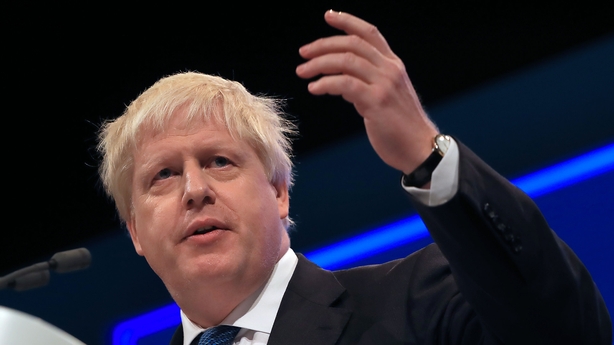Japanese Prime Minister Shinzo Abe has said he would discuss North Korea "thoroughly" with his US counterpart Donald Trump when he visits next month.
Mr Abe was speaking at a news conference after his ruling coalition scored a landslide victory in the lower house election.
He said the visit by Mr Trump to reaffirm the two countries' commitment to working together in dealing with North Korean leader Kim Jong-Un.
North Korea has been involved in an ongoing war of words with Mr Trump's administration, with Korean officials last month saying they had 'more gift packages' for the United States.
That comment came shortly after North Korea carried out its sixth and largest nuclear bomb test.
The Japanese leader spoke with Mr Trump by phone following his party's election success.
A spokesperson said the two leaders were planning to play golf together on 5 November, when Mr Trump makes his first visit to Japan as US President.
Final figures from yesterday's election are to be released later today, but the ballot represents a huge win for Mr Abe and politicians who favour revising Japan's post-war pacifist constitution.
Parties in favour of amending the US-drafted charter won nearly 80% of the seats in the lower house election, media counts showed.
Amending the charter's pacifist Article 9 would be hugely symbolic for Japan.
Supporters see it as the foundation of post-war democracy, but many conservatives view it as a humiliating imposition after Japan's defeat in 1945.
It would also be a victory for Mr Abe, whose conservative agenda of restoring traditional values, stressing obligations to the state over individual rights and loosening constraints on the military, centres on revising the constitution.
Any revision of the constitution requires support from two-thirds of the members of each chamber of parliament and a majority in a public referendum, with no minimum quorum.

Meanwhile, Britain's Foreign Secretary is to urge Mr Trump to show the "far-sightedness" not to quit the Iran nuclear deal, arguing it illustrates the kind of "diplomatic imagination" that could solve the North Korea crisis.
Boris Johnson will point to the success of the Iran deal while calling for "toughness but engagement" with Pyongyang to de-escalate tensions on the Korean peninsula.
He is expected to single out US Secretary of State Rex Tillerson for praise for opening the door to dialogue with Kim Jong-un, which Mr Trump has described as a "waste of time".
But Mr Johnson will stress that the president is also right to "prepare any option" to keep America and its allies safe in the face of North Korea's race to a long-distance nuclear missile.
His intervention comes amid concern at what has been seen as inflammatory rhetoric being traded by Mr Trump and Mr Kim, who the president describes as "Rocket Man".
It also comes after Mr Trump decertified the 2015 pact with Iran, complaining his predecessor Barack Obama had been taken advantage of in negotiations, and last week repeated his threat to pull out of the landmark deal entirely.

